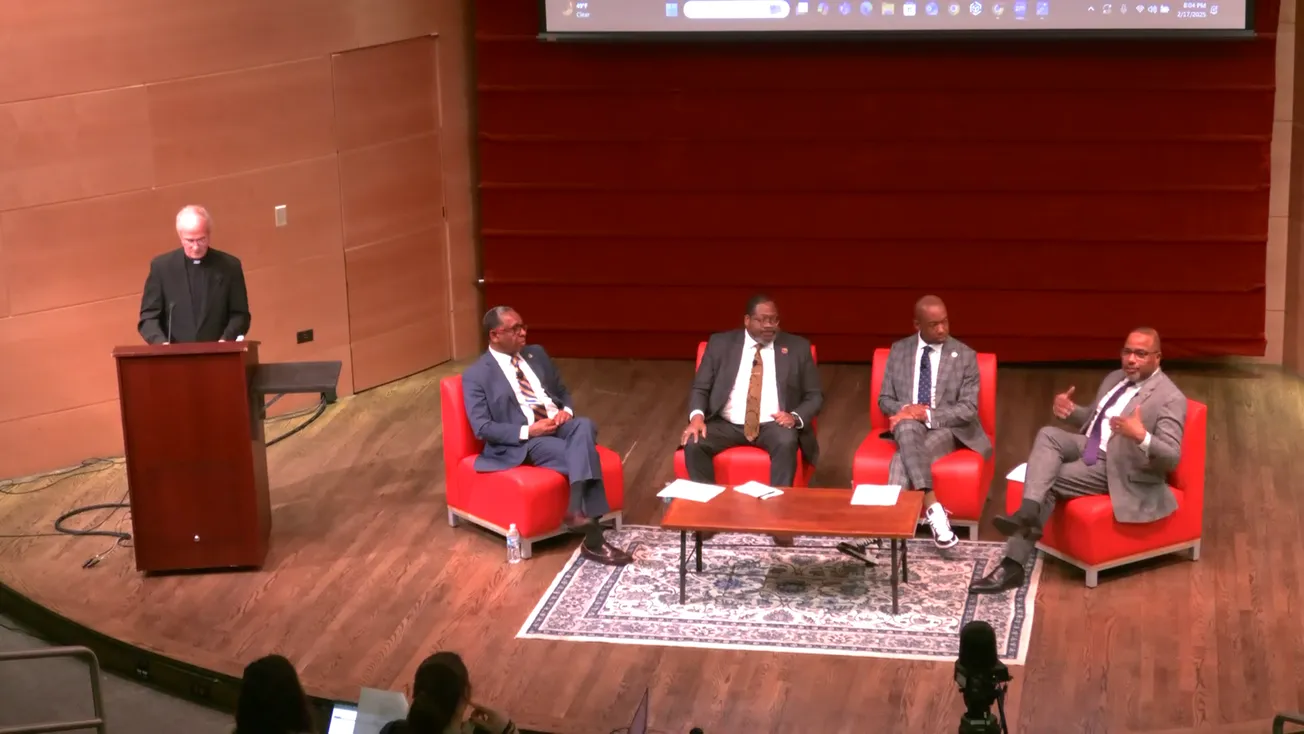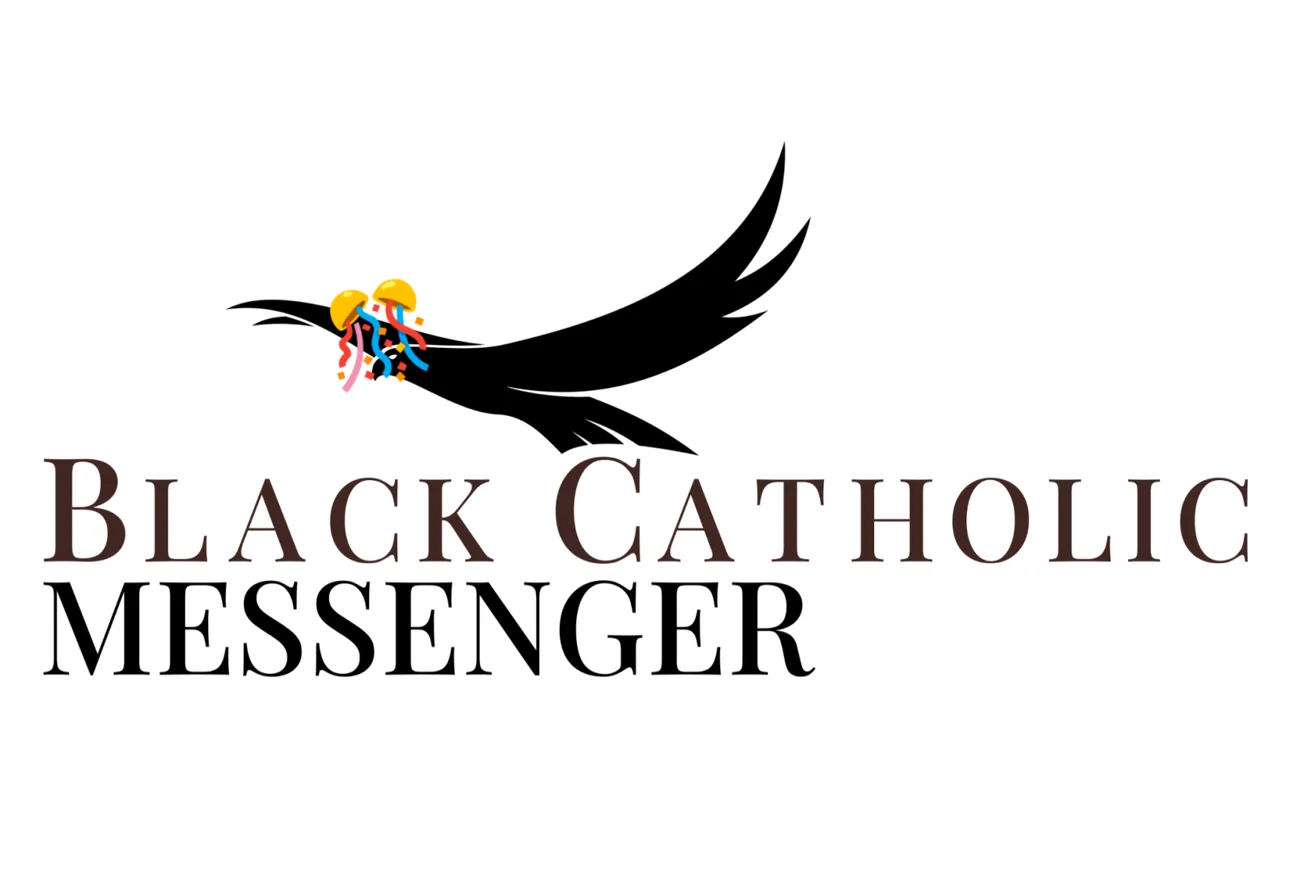Five Black presidents of U.S. Catholic universities descended on New Orleans this week for a public forum on the changing nature of Catholic higher education, informed by their perspectives from institutions around the country.
The livestreamed “Five Presidents Forum” was held in person Monday night in Nunemaker Hall at Loyola University New Orleans, where the newest of the five—Dr. Xavier Cole—was installed as president in late 2023.
“The idea of holding this event comes from the fact that more and more Catholic institutions of higher learning are entrusting their educational apostolates to lay men and women,” said moderator Fr R. Bentley Anderson, a Jesuit priest who teaches religion at Loyola.
“The other reason why I wanted to host this event is because we are in a unique moment in U.S. Catholic history. We have before us [five] men who happen to be African American, leading our institutions.”
The 90-minute event features musings on various topics related to the theme, including the issues of formation, mission alignment, the changing priorities of younger generations, and the role of Catholic academia in reaching the marginalized.
A virtual panelist, Vincent Rougeau, has served as president of the College of the Holy Cross in Worcester, Massachusetts since 2021. He spoke of his family’s experience with Jesuit education following his father Weldon’s exodus from the South in 1961. He was expelled from Southern University in Baton Rouge, Louisiana, for participating in a protest against segregation.
“An opportunity came to my dad because the Jesuits saw what he did when he engaged in a Civil Rights protest as Southern as the right thing, and something they felt should allow him to come to Loyola [University Chicago] and finish his education,” said Rougeau, who himself served there as a professor in the 1990s.
“So ever since that moment… I have tried to shape my own career as an academic and then later as a dean around apostolic principles and Catholic social teaching.”
Several participants also spoke of the historical phenomenon that has recently reshaped Catholic education since the Second Vatican Council. Namely, that declining vocations to consecrated life and the priesthood have changed formerly clerical or religious-led institutions into lay-led operations.
“Accountability and responsibility in the Church derives from baptism, not from ordination,” said Xavier University of Louisiana president Dr. Reynold Verret, quoting a message Pope Francis communicated to Catholic educators years ago during a conference in Rome.
“That notion of how we form students, and the formation of faculty, staff, and everyone around us is about giving that accountability, because Church is actually each of you and each of us.”
Verret, like each of the panelists, is among the first lay presidents at his institution, having served at XULA since 2015. All except Verret—who serves at the nation’s Catholic HBCU—are the first person of color to lead their school.
Asked how their ethnic identity informs their presidency, the participants described the resiliency built into their upbringing, their interactions with a new generation of students open to difficult discussions, and the challenges of a U.S. Catholic landscape still recovering from centuries of discrimination.
“We didn't talk about race during my interview process,” said Dr. Cole, who was raised in Mississippi but has spent most of his academic career in the Midwest and on the East Coast.
“When I was named and they said, ‘You will be the first Black president of Loyola New Orleans,’ I was as surprised as anybody else.”

Steven K. Stoute, who has led Caniusius University in Buffalo, New York, since 2022, said race has often been a taboo topic even on Catholic campuses dedicated to dialogue. This, however, has changed gradually with the browning of the U.S. Church.
“The more important part of being a Black man who leads a Catholic institution in Western New York is creating the space that allows our community to ask critical questions,” said Stoute.
“Why do we do things a certain way? Why are our processes, our protocols, our systems set up to serve students we no longer really attract? What we know from the census data is that the young people in this country who are aged 13 to 15 are already majority-minority.”
The topic also prompted comments on the current political climate, which has recently featured federal and local efforts to silence certain tellings of Black history, and widespread attacks on diversity and inclusion.
This dovetailed with another question concerning how to deal with seemingly Catholic ideologies that are in fact derived from another motivation entirely.
“I do find that there are times when, in Catholic higher education, we struggle to talk about certain issues because the belief is that we can't touch that. We can't go there. We can't talk about that,” said Dr. Robert D. Kelly, president of the University of Portland since 2022.
“It's how we see the humanity in another person, realizing God's grace and dignity in every single human being. Sometimes, that's the part that gets lost when there are assumptions that a person might believe are rooted in Catholicism but really are rooted in racism.”
The event concluded with a question on the cost of Catholic higher education, which has risen exponentially in recent decades. The panelists were in agreement that the mission is still worth the price, though adding that creative strategies and robust financial support are needed.
“People are coming to us despite the cost and despite the challenges because they see the value… The case isn't hard to make, but I don't know if we're always making the case to the best of our ability,” said Rougeau.
“We should commit ourselves to making sure that we get our message out about the value of Catholic higher education and its results, because the country and the world have never needed us more.”
Nate Tinner-Williams is co-founder and editor of Black Catholic Messenger.









